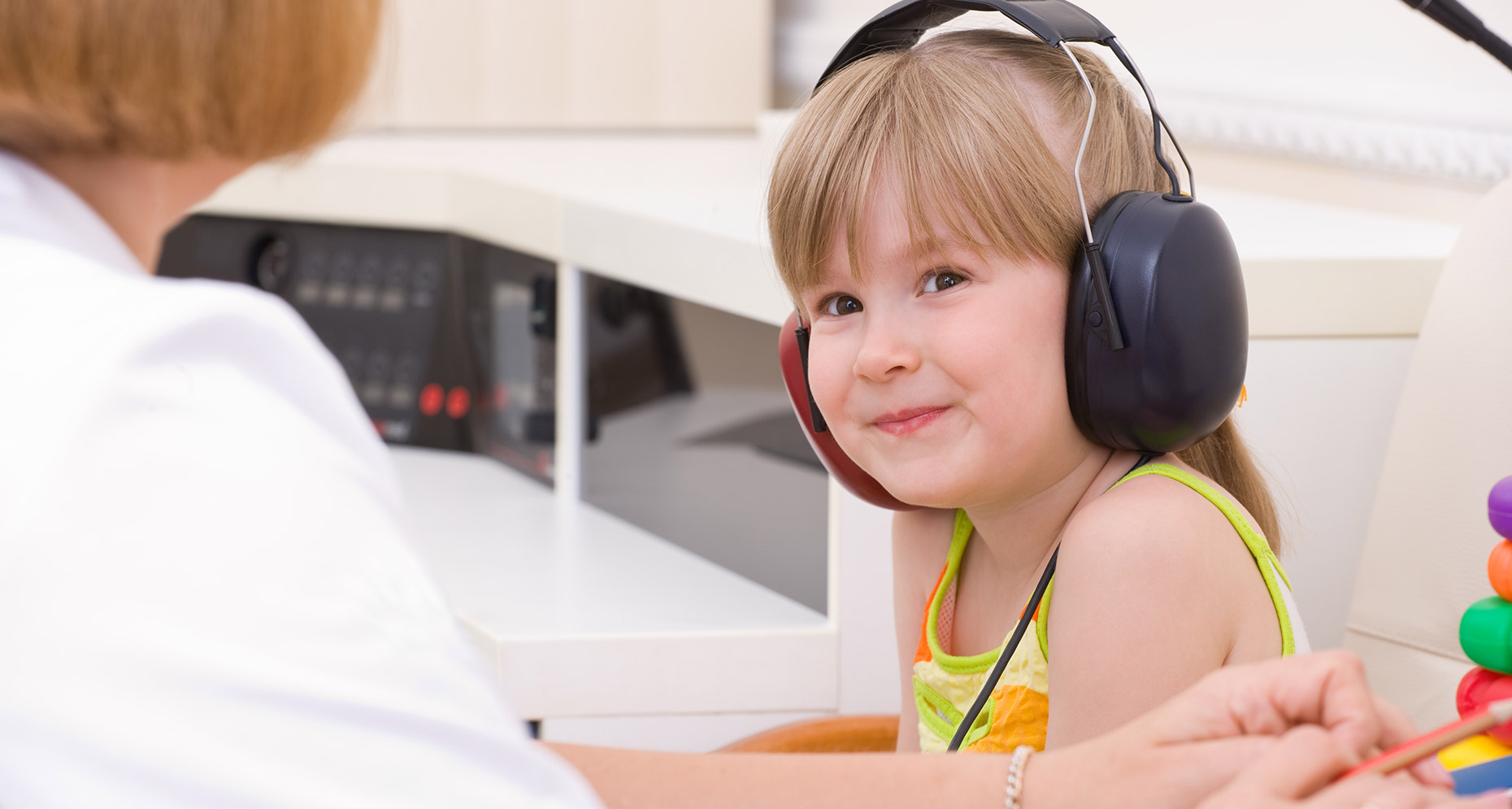The ability to hear is crucial for a child’s social, academic and emotional development. Hearing loss is often associated with getting older but it is increasingly affecting children and young adults. One of every thousand children are born with some sort of hearing loss. While hearing loss can happen at any age, it can be easy to overlook the signs when it comes to children as they might not exhibit them quite as clearly, especially in older children whose speech skills are developed. Even newborns can be tested and treated for hearing loss.
There are 2 main types when it comes to hearing loss in children: ‘congenital,’ which is present at birth and ‘acquired’ which occurs later in life. Congenital hearing loss can be due to hereditary factors such as autosomal recessive hearing loss, genetic syndromes, birth complications such as prenatal infection or lack of oxygen, as well as the consumption of ototoxic medication during the pregnancy. Acquired hearing loss occurs when there is infection, commonly in the middle ear, when there is an obstruction in the ear canal, injuries to the head or ears, consumption of ototoxic medication as well as excessive noise exposure.
 Children are usually screened for hearing impairments as newborns, and again before entering kindergarten. Just because a child has failed a hearing test does not necessarily mean that there is hearing impairment. Children can fail test because of environmental factors such as the doctor’s office being noisy, or even because they don’t have the attention span to sit still and concentrate on the tones. There could also be temporary hearing loss such as fluid in the ear. If hearing loss is suspected, the child will be referred to an audiologist for an extensive hearing evaluation. The most common reason a doctor would refer a child to an audiologist for hearing screenings is because of a speech or language delay.
Children are usually screened for hearing impairments as newborns, and again before entering kindergarten. Just because a child has failed a hearing test does not necessarily mean that there is hearing impairment. Children can fail test because of environmental factors such as the doctor’s office being noisy, or even because they don’t have the attention span to sit still and concentrate on the tones. There could also be temporary hearing loss such as fluid in the ear. If hearing loss is suspected, the child will be referred to an audiologist for an extensive hearing evaluation. The most common reason a doctor would refer a child to an audiologist for hearing screenings is because of a speech or language delay.
Being aware and on top of all your child’s hearing milestones can ensure that their development is normal. With older children, some things to take note of include:
- When they seem to hear just fine some of the time but fail to respond at other times
- They require the TV volume to be louder than necessary
- They move one ear forward when listening
- When the teacher notes they don’t seem to hear or respond well during class
- When they start to speak more loudly
- When they look at you with intense concentration, and depend on visual cues to interpret speech
If you’re looking for hearing tests for kids, get in touch with the team at The Art of Hearing! At the Art of Hearing, our team of experienced and trained audiologists are dedicated to helping our patients achieve the best quality of life with proper diagnosis and treatment plans. With children, the earlier the treatment is started, the better the outcome. If you suspect that your child might be suffering from hearing loss, then call us at (08) 9390 8811.
Leave a Reply